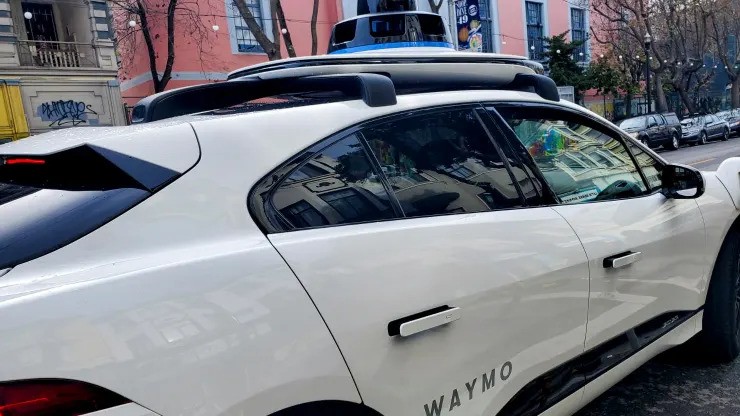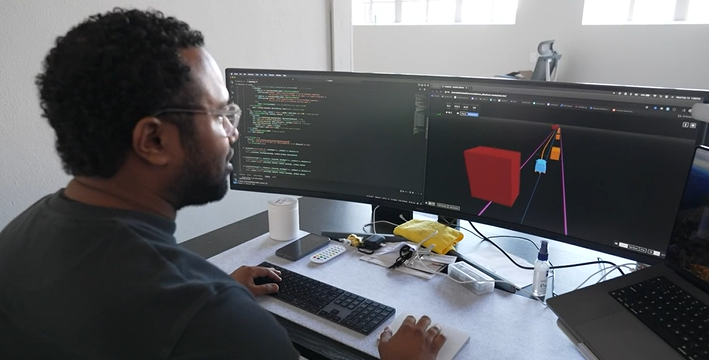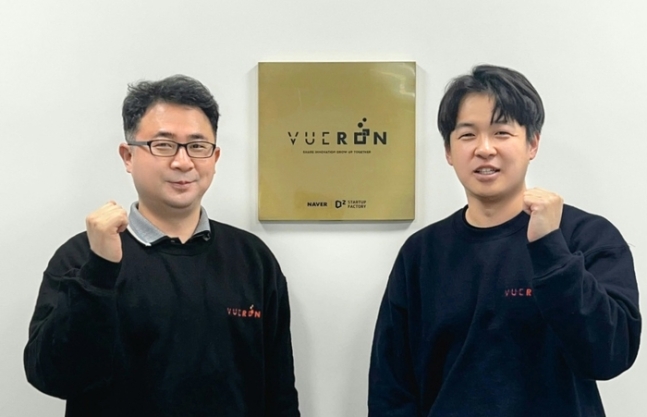
Vueron Newsletter
No. 90
2024.02.16
| Waymo issues a voluntary recall on its self-driving vehicle software | ||
| Toyota to Launch Japan’s First Fully Automated Driving Service on Public Roads Starting in Odaiba, Tokyo, This Summer | ||
| The former STRADVISION CTO, Hongmo Je has joined Vueron Technology as new Head of Engineering | ||
| Chinese carmaker deploys its own satellites to facilitate autonomous driving |
1. Waymo issues a voluntary recall on its self-driving vehicle software
-
- Waymo has voluntarily recalled software used in their driverless cars after two incidents in Phoenix where two robotaxis crashed into the same towed pickup truck within minutes.
- The crashes resulted in minor vehicle damage and no injuries, as no passengers were in the vehicles.
- The National Highway Traffic Safety Administration (NHTSA) has received Waymo’s recall filing.
- The recall involves updating the software to address the automated driving system incorrectly predicting the future motion of a towed vehicle.
- Software updates were completed by Jan. 12 without interrupting Waymo’s ride-hailing service.
- Waymo operates its driverless ride-hailing service, Waymo One, in Phoenix, San Francisco, Los Angeles, and Austin, with approximately 700 vehicles in the fleet.
- Despite some public backlash against driverless vehicles, Waymo has generally faced less criticism due to its communication efforts with agencies like NHTSA.

The voluntary recall by Waymo showcases a proactive approach to safety concerns in autonomous vehicles, emphasizing the importance of continuous improvement and addressing potential issues promptly. Despite Waymo’s efforts to maintain a positive image through communication and cooperation with regulatory agencies, incidents involving autonomous vehicles from various companies highlight ongoing challenges and concerns regarding the technology’s safety and public acceptance.
2. Toyota to Launch Japan’s First Fully Automated Driving Service on Public Roads Starting in Odaiba, Tokyo, This Summer
-
- Toyota Motor Corp. plans to launch a self-driving transportation service in Odaiba, Tokyo, this summer, using Level 4 autonomous driving technology to establish a driverless robotaxi business.
- Initially, the service will operate within a 1.5 square kilometer area around the new arena being constructed in Odaiba, offering free rides. By 2025, Toyota aims to transition to a paid service covering other districts of central Tokyo, potentially becoming Japan’s first automated driving service on public roads with other vehicles.
- The service will partner with Monet Technologies Inc., utilizing a self-driving system from U.S. startup May Mobility. Discussions have occurred with relevant authorities since autumn 2023.
- Toyota Sienna minivans equipped with a danger prediction system using sensors and AI will operate fully autonomously, though a driver will initially be present for safety.
- Initially, the service will run between two designated locations in Odaiba during daytime hours, with limited boarding and alighting points.
- Toyota plans to use the free service to assess safety and profitability, expanding it gradually to other areas of central Tokyo from 2025, potentially integrating with ride-hailing services.
- The move aligns with Toyota’s efforts to advance autonomous driving technology and promote its understanding within society, potentially overtaking competitors in Japan.
- Toyota’s service may replace traditional taxi and bus services, with Honda Motor Co. also preparing a similar service in central Tokyo from January 2026, collaborating with U.S. General Motors and others.

Toyota’s initiative reflects the growing trend towards autonomous transportation services globally, driven by technological advancements and addressing societal needs such as labor shortages in the transportation sector. The taxi industry’s labor shortage and upcoming government support for ride-sharing services make robotaxis a strategic solution.
3. Dallas start-up Mozee bringing self-driving technologies to businesses, government
-
- Shawn Taikratoke is leading the development of a self-driving transportation solution through his startup, Mozee, which involves over 2 million lines of code and aims to address transportation challenges.
- Mozee is creating a fleet of trolley-like self-driving vehicles to operate on predefined routes, offering affordable transportation within cities, resembling a trolley system without tracks.
- The startup’s first pilot program, set for March, will involve shuttling government employees between six government buildings in North Texas.
- Another pilot program is planned later in the year at JP Morgan and Chase’s Plano campus.
- The fleet is designed for short hauls, with a range of about 100 miles per charge and a capacity of 12 passengers, seating and standing, with a top speed of 45 miles per hour.
- The team at Mozee’s Dallas Design District headquarters is finalizing vehicle designs, retrofitting the vehicles, and conducting extensive testing.
- Mozee is learning from the experiences of other autonomous vehicle companies, such as Cruise, to avoid similar issues and ensure the success of their self-driving transportation solution.

By focusing on predefined routes and short hauls, Mozee aims to provide convenient and affordable transportation options within cities, potentially reducing reliance on personal vehicles and easing traffic congestion. Collaboration with government entities and private companies for pilot programs demonstrates Mozee’s commitment to the practical implementation and scalability of their self-driving fleet.
4. The former STRADVISION CTO, Hongmo Je has joined Vueron Technology as new Head of Engineering
-
- Vueron Technology appoints Hongmo Je, former CTO of Stravision, as the new Head of Engineering to strengthen and mass-produce its Advanced Driver Assistance System (ADAS) technology.
- The appointment aims to accelerate the mass production of Vueron’s LiDAR ADAS solution, VueOne, according to CEO Jaekwang Kim.
- Hongmo Je, a top AI expert in Korea with over 20 years of experience, has previously worked at Olaworks, Intel Korea, and STRADVISION, where he successfully mass-produced deep learning-based camera recognition technology for ADAS.
- Vueron showcased its upgraded autonomous driving solution, VueOne, at CES 2024, winning the CES® 2024 Innovation Award for Smart Crowd Analytics (SCA) for VueTwo, an in-house developed crowd management solution.

The appointment of Hongmo Je underscores Vueron’s commitment to advancing its LiDAR-based ADAS technology and accelerating its mass production. Hongmo Je’s extensive experience in AI and ADAS technology, particularly in mass production, positions Vueron to achieve its goals effectively.
5. Chinese carmaker deploys its own satellites to facilitate autonomous driving
-
- Geely, a Chinese automotive group, has launched its first satellites through its space subsidiary, Geespace, intending to form a constellation to support autonomous vehicle operations.
- This marks a significant milestone not only for China but also for the automotive industry, as it demonstrates the integration of space technology with mobility solutions.
- The 11 satellites launched into low-Earth orbit will be utilized for communication, navigation, and remote sensing of vehicles produced by Geely, enabling precise vehicle location tracking to the nearest centimeter.
- The initiative is particularly targeted towards advancing autonomous driving technology and enhancing its reliability.
- Initial models benefiting from this satellite network include vehicles under Geely’s Zeekr high-end electric vehicle brand, as well as other brands owned by Geely such as Lotus, Smart, and Volvo.
- By 2025, the constellation is expected to comprise 72 satellites, with plans for further expansion to 168 satellites in a second phase.
- The project draws parallels with initiatives like Starlink, a low-orbit satellite constellation aimed at providing universal internet access, highlighting the convergence of space technology and various industries beyond telecommunications.

Geely’s venture into satellite technology underscores the increasing importance of connectivity and precise positioning for the future of autonomous vehicles. This initiative aligns with broader trends in the convergence of space technology with terrestrial applications, showcasing the potential for synergies between industries and the integration of satellite services into various sectors beyond traditional telecommunications.
*Contents above are the opinion of ChatGPT, not an individual nor company

